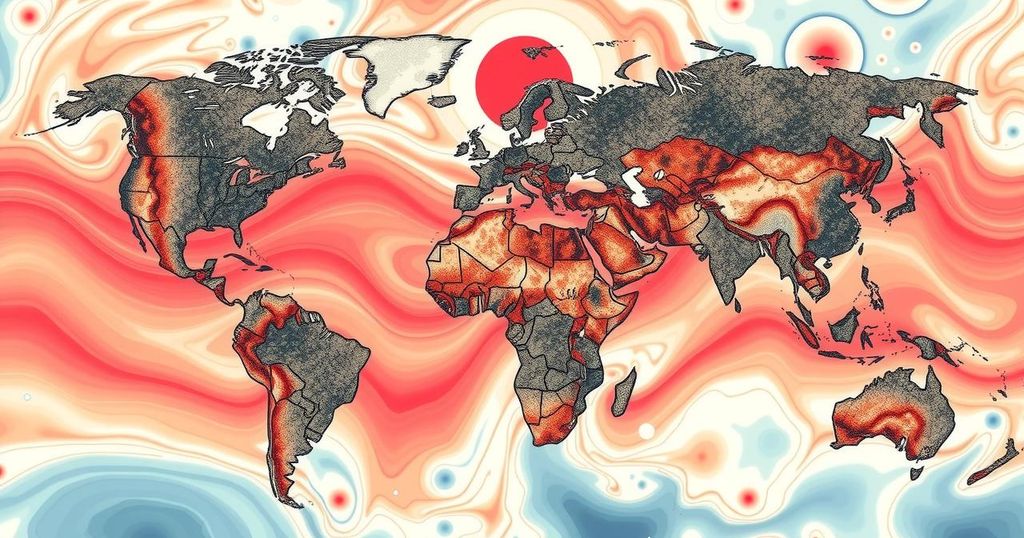Japan’s weather agency reported 2024 as the hottest year on record, with temperatures 1.48 degrees Celsius above the 1991-2020 average. Climate change and rising greenhouse gas emissions contribute to these extreme conditions, with severe weather events leading to significant tragedies. Japan aims for carbon neutrality by 2050, seeking to increase renewable energy sources substantially by 2040, despite currently relying heavily on fossil fuels.
On January 6, 2024, Japan’s weather agency declared that 2024 marked the highest recorded temperatures since official records began, aligning with global trends of increasing temperatures resulting from escalating greenhouse gas emissions. The Japan Meteorological Agency (JMA) reported that the average temperature throughout the year was 1.48 degrees Celsius above the 1991-2020 average, making it the hottest year since data collection commenced in 1898, surpassing the previous year’s record by 0.19 degrees.
Mr. Kaoru Takahashi, an official at the JMA, noted that climate change is a significant influencing factor behind this trend. He also stated that the northward shift of westerly winds brought warmer air into the region. The summer of 2024 matched the previous year’s record for heat, while autumn was reported as the warmest on record. Additionally, the iconic snow cap of Mount Fuji was notably absent until early November, compared to its usual appearance by early October.
The JMA has observed a long-term increase in Japan’s temperature at a rate of 1.40 degrees Celsius per century, particularly since the 1990s. The phenomenon of climate change is intensifying the frequency of extreme weather events, such as heavy rainfall, which poses considerable risks in Japan. September 2024 witnessed severe floods and landslides, resulting in 16 fatalities in the Noto Peninsula, already grappling with an earthquake earlier that year. November further exacerbated the situation as heavy rains triggered mass evacuation orders for hundreds of thousands.
Several other nations, including India, Indonesia, and Brazil, also recorded extreme temperatures in 2024, alongside rising greenhouse gas emissions, as reported by the World Meteorological Organization. In contrast to its climate ambitions, Japan’s energy framework remains heavily reliant on fossil fuels, accounting for approximately 70 percent of its energy supply in 2023. In pursuit of carbon neutrality by 2050, Japan intends to elevate renewable energy sources to comprise 40-50 percent of its electricity production by 2040, up from the current 23 percent in 2023.
The ongoing conversation around climate change has highlighted a significant global trend evident in 2024, where various nations, including Japan, reported record-breaking temperatures. Greenhouse gas emissions have compounded the risks posed by climate change, leading to extreme weather patterns, including heavy rainfall and unprecedented heatwaves. Japan’s commitment to addressing climate change is underscored by its ambitious goals for 2030 and 2050, aiming to reduce emissions and increase the share of renewable energy in its power generation mix.
In summary, 2024 has been recognized as the hottest year on record for Japan, in tandem with alarming global climate trends. The significant increase in average temperatures, coupled with extreme weather phenomena, underscores the urgent need for climate action. Japan’s reliance on fossil fuels contrasts sharply with its goals for carbon neutrality, necessitating a committed shift towards renewable energy resources. The continuing rise in greenhouse gas emissions remains a critical concern for the global community, calling for immediate and sustained efforts to combat climate change.
Original Source: www.straitstimes.com






